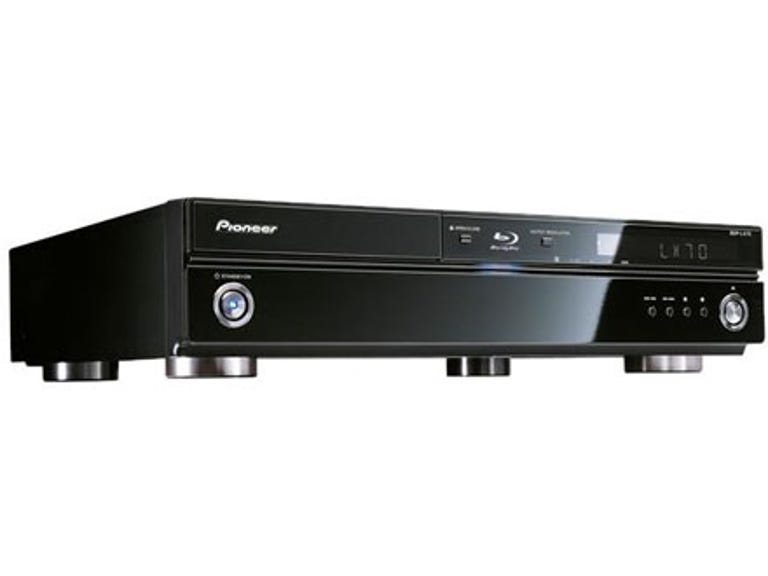 Why You Can Trust CNET
Why You Can Trust CNET Pioneer BDP-LX70 review: Pioneer BDP-LX70
You can't argue with the stunning picture quality, great build, 1080p/24 support and PC network compatibility of the Pioneer BDP-LX70 Blu-ray player. It will reproduce every pixel of detail from remastered DVDs and delivers hi-fi performance from Blu-ray soundtracks and CDs
Pioneer has bravely entered the high-definition format war by nailing its colours to the Blu-ray mast with a new high-end player, the BDP-LX70.
The Good
The Bad
The Bottom Line
With a premium price tag of around £980, though, it will have to work very hard indeed to overcome our inevitable scepticism about buying into either HD disc format right now.
Strengths
Let's get straight down to business, shall we? Basically, the LX70's pictures are absolutely outstanding. In fact, they're the best we've seen from a Blu-ray player to date.
They're particularly magnificent if you set the player to output the 1080p/24fps format (used to master the vast majority of films to HD disc) and play the pictures into one of Pioneer's own new Kuro plasma TVs, which convert them via a relatively simple mathematical process to 72Hz for amazingly smooth, clean and sharp playback.
But even feeding 1080p/24fps from the Pioneer into a lesser TV shows off the LX70's remarkable talent for reproducing every pixel of detail from immaculately mastered discs such as Casino Royale.
The deck also produces blisteringly vibrant -- but always natural -- colours with Blu-ray discs, and does a superb job too of upscaling your old DVDs to 720p, 1080i or 1080p. Seriously, it's rare indeed for any upscaler, even a really high-end one, to add resolution to your discs as effectively and with as few unwanted side effects as the LX70 does.
As you'd hope, given Pioneer's audio heritage, the LX70 also delivers a true hi-fi performance with Blu-ray soundtracks and CDs alike.
Other more minor bits and bobs we like about the LX70 are its provision of 5.1 audio outputs for delivering Dolby TrueHD to a compatible AV receiver and a LAN port via which you can stream various AV file formats from a connected PC into your TV. Neat.
Weaknesses
Sadly, even though it's new and a cracking performer, the LX70 is already a machine out of time. The simple fact is it doesn't do everything necessary to meet the new Blu-ray Profile 1.1 specification set to become mandatory on all Blu-ray players released from the end of October.
What this means in practical terms is that the LX70 won't be able to handle all Blu-ray Java features on future Blu-ray discs. And so you most likely won't be able, for instance, to watch director's commentary tracks if they're presented as picture-in-picture video. Ouch.
Another more surprising shortcoming of the LX70 is its use of an HDMI 1.2 output rather than the new 1.3 format. It's thus not able to deliver HDMI 1.3 features such as the digital output of HD audio formats, or the Deep Colour enhanced picture system. Hardly ideal for such an expensive machine.
One final niggle is that it takes forever to load Blu-ray discs up -- though in this respect the LX70 is hardly alone in the HD disc-playing world.
Conclusion
On the one hand, the LX70 deserves to have praise showered upon it for showing just what exceptional picture quality Blu-ray is capable of producing. But on the other, it's practically impossible to recommend that anyone but the filthy rich consider spending the best part of a grand on it. It not only caters for just one side in an unresolved format war, but it's also about to go out of date.
Edited by Jason Jenkins
Additional editing by Jon Squire
